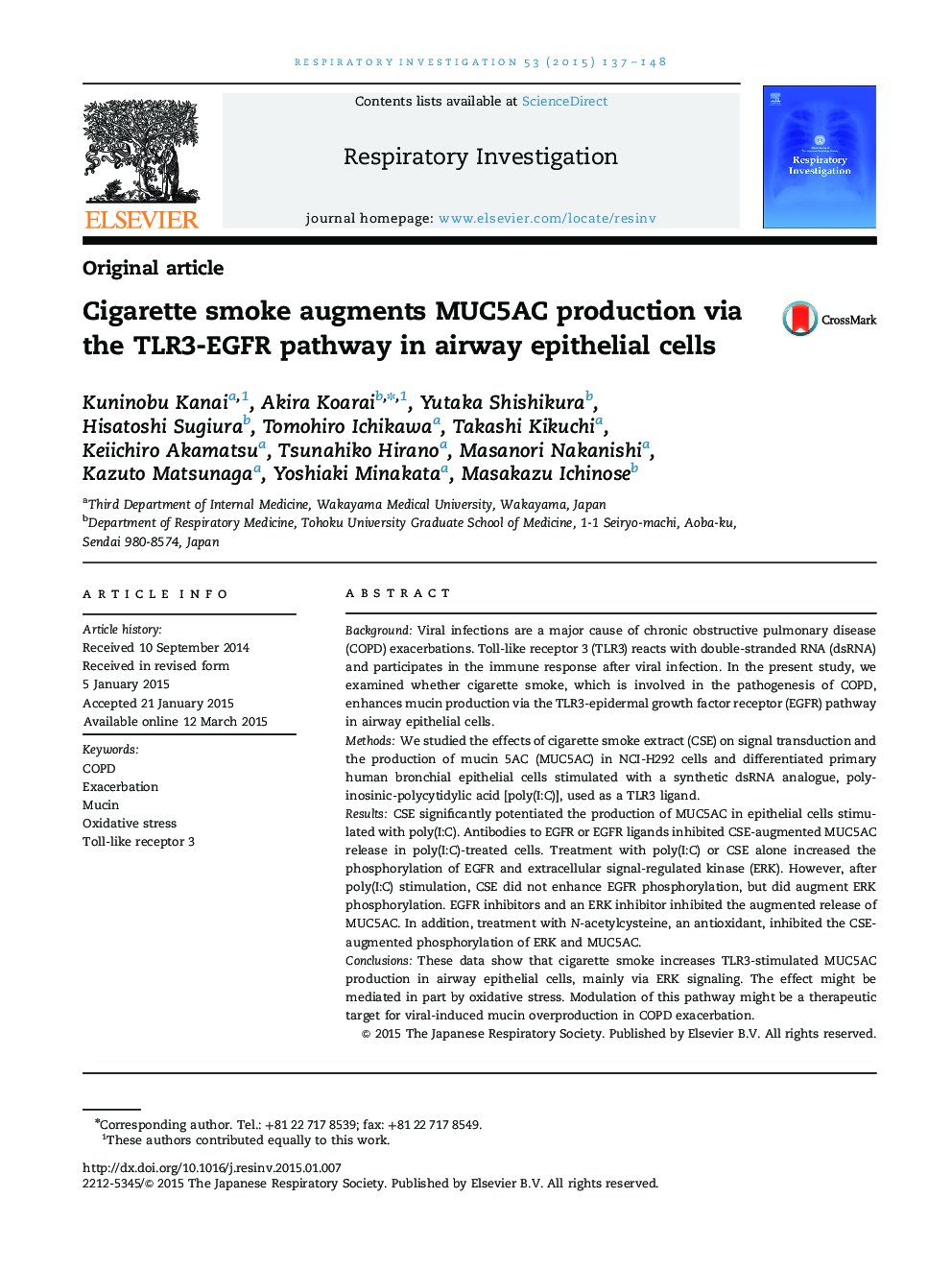| Article ID | Journal | Published Year | Pages | File Type |
|---|---|---|---|---|
| 3418603 | Respiratory Investigation | 2015 | 12 Pages |
BackgroundViral infections are a major cause of chronic obstructive pulmonary disease (COPD) exacerbations. Toll-like receptor 3 (TLR3) reacts with double-stranded RNA (dsRNA) and participates in the immune response after viral infection. In the present study, we examined whether cigarette smoke, which is involved in the pathogenesis of COPD, enhances mucin production via the TLR3-epidermal growth factor receptor (EGFR) pathway in airway epithelial cells.MethodsWe studied the effects of cigarette smoke extract (CSE) on signal transduction and the production of mucin 5AC (MUC5AC) in NCI-H292 cells and differentiated primary human bronchial epithelial cells stimulated with a synthetic dsRNA analogue, polyinosinic-polycytidylic acid [poly(I:C)], used as a TLR3 ligand.ResultsCSE significantly potentiated the production of MUC5AC in epithelial cells stimulated with poly(I:C). Antibodies to EGFR or EGFR ligands inhibited CSE-augmented MUC5AC release in poly(I:C)-treated cells. Treatment with poly(I:C) or CSE alone increased the phosphorylation of EGFR and extracellular signal-regulated kinase (ERK). However, after poly(I:C) stimulation, CSE did not enhance EGFR phosphorylation, but did augment ERK phosphorylation. EGFR inhibitors and an ERK inhibitor inhibited the augmented release of MUC5AC. In addition, treatment with N-acetylcysteine, an antioxidant, inhibited the CSE-augmented phosphorylation of ERK and MUC5AC.ConclusionsThese data show that cigarette smoke increases TLR3-stimulated MUC5AC production in airway epithelial cells, mainly via ERK signaling. The effect might be mediated in part by oxidative stress. Modulation of this pathway might be a therapeutic target for viral-induced mucin overproduction in COPD exacerbation.
